National Assembly Chairman Tran Thanh Man speaks. (Photo: VNA)
With 466/466 National Assembly delegates participating in the vote in favor, on the morning of June 16, the 9th Session of the 15th National Assembly passed the Law on Organization of Local Government (amended).
Unlocking resources to meet the goal of rapid and sustainable growth
Before pressing the approval button, Minister of Home Affairs Pham Thi Thanh Tra, authorized by the Prime Minister, reported on the acceptance, revision and completion of the draft Law on Organization of Local Government (amended).
Minister of Home Affairs Pham Thi Thanh Tra said that after the discussion session in the Group and in the Hall, 160 National Assembly deputies spoke and 04 National Assembly deputies sent written opinions on the draft Law, the majority of the deputies expressed their high agreement with the contents of the draft Law.
Accordingly, the draft Law demonstrates innovative thinking aimed at modern local governance, creating development, removing “bottlenecks”, and unlocking resources to meet the goal of rapid and sustainable growth of localities in particular and the whole country in general in the new era of the country. The construction of this Law also has great historical significance, creating a solid legal foundation for the organization and operation of local governments according to the 2-level local government model, which is organized for the first time in our country.
National Assembly deputies from Hanoi vote to pass draft laws at the 9th Session. (Photo: VNA)
Regarding the demarcation of administrative units and organization of local government in administrative units, the Draft Law establishes a unified 2-level local government organization model (provincial and communal levels) nationwide, clearly defining the tasks, authority and organizational structure of each level of government; establishing a complete legal basis for the local government model in special zones.
At the same time, absorbing the opinions of National Assembly deputies, the Government has revised and supplemented regulations on administrative units, organizational principles and operations of local governments to ensure streamlining, efficiency, effectiveness, efficiency, closeness to the people, better serving the people, thoroughly implementing the principle of "local decision, local action, local responsibility", promoting the proactiveness, creativity, autonomy and self-responsibility of local governments.
Also according to the Government representative, in order to institutionalize the viewpoints and directions of the Central Government, the Politburo, and the Secretariat, the draft Law has completed the principles of delimiting authority, decentralization, and delegation between the Central Government and local authorities, between provincial-level local authorities and commune-level local authorities in a scientific, synchronous, and unified manner; clearly defining authority between the collective People's Committee and the individual Chairman of the People's Committee, creating conditions for implementing a flexible and effective management mechanism, encouraging the initiative and creativity of the heads of state administrative agencies at the local level.
At the same time, absorbing the opinions of National Assembly deputies, the Government has revised and supplemented the regulations on the division of authority, decentralization, delegation and authorization, specifically adding the subjects of decentralization as the People's Council and the Chairman of the People's Committee at the provincial level; Supplementing the monitoring, evaluation and supervision mechanism to promptly adjust the contents of decentralization and delegation.
In addition, empower the Chairman of the provincial People's Committee to directly direct and manage the settlement of issues within the tasks and powers of specialized agencies, other administrative organizations under his/her level and of the People's Committee, Chairman of the People's Committee at the commune level, to prevent the settlement of work and administrative procedures for people and businesses from being delayed, congested, or ineffective.
No duplication or overlap in tasks and authority of each level of government
Based on the principles of delimitation of authority, the draft Law has comprehensively redesigned the tasks and powers of local governments at two levels (provincial and communal levels), ensuring clear delimitation, without duplication or overlap in the tasks and powers of each level of government, in accordance with the modern local governance model, and at the same time, creating a legal basis for specialized laws to base on the provisions of this Law to specifically stipulate the tasks and powers of local governments at provincial and communal levels in specialized fields.
According to Minister Pham Thi Thanh Tra, accepting the opinions of National Assembly deputies, the Government has reviewed and revised the regulations on local governments at the provincial and communal levels as follows: Adjusting a number of tasks and powers of the People's Committee for the Chairman of the People's Committee (the Provincial People's Committee has 12 groups of tasks and powers; the Chairman of the Provincial People's Committee has 23 groups of tasks and powers; the Commune People's Committee has 10 groups of tasks and powers; the Chairman of the Commune People's Committee has 17 groups of tasks and powers);
Along with that, supplement the regulation that the Chairman of the People's Committee is allowed to decide on the tasks and powers of the People's Committee (except for contents that require collective discussion of the People's Committee) and report to the People's Committee at the nearest People's Committee meeting.
This is a strong reform step to promote the responsibility of the head, creating a driving force for innovation in local governance. Accordingly, these provisions of the Law will ensure the promotion of initiative, creativity, flexibility, and enhance the responsibility of the Chairman of the People's Committee, the effectiveness and efficiency of state administrative management and administration at the local level in accordance with practical requirements.
According to the Government representative, the Draft Law has combined selective inheritance and innovation to perfect the regulations on the organization and operation of local governments at two levels. At the same time, absorbing the opinions of National Assembly deputies, the Government has continued to revise and perfect these contents in the Draft Law.
Specifically, the regulation stipulates that the People's Council at the commune level has 02 Committees: the Economic-Budget Committee and the Cultural-Social Committee; Maintain the number of People's Council delegates at the provincial and commune levels within the minimum and maximum framework (In particular, the number of People's Council delegates of Ho Chi Minh City and Hanoi City has 125 delegates).
The principled provision in the draft Law is that "The Chairman, Vice Chairman, Head, Deputy Head of the Provincial and Commune People's Council, and Members of the Provincial People's Council Committees may be full-time People's Council delegates" and assigns "the Standing Committee of the National Assembly to specifically stipulate the number of Vice Chairmen and Deputy Heads of the Provincial and Commune People's Councils, and the arrangement of full-time People's Council delegates at the provincial and commune levels" to ensure flexibility and suitability with the country's and local realities at each stage of the country's development or when there are new policies and orientations from competent authorities, these provisions of the Law do not need to be amended or supplemented.
Voting results on the Law on Organization of Local Government (amended). (Photo: PV/Vietnam+)
According to Minister Pham Thi Thanh Tra, the transition from a three-level to a two-level local government model is an important and historic reform step. To ensure continuity, smoothness and stability in this transition process, the draft Law has provided comprehensive and comprehensive provisions, taking into account issues that may arise in practice, from the organization of the apparatus, personnel to administrative procedures and operating mechanisms.
At the same time, absorbing the opinions of the National Assembly deputies and based on Conclusion No. 167-KL/TW dated June 13, 2025 of the Politburo and the Secretariat, the draft Law has revised and supplemented the following provisions: Transitional provisions for wards in Hanoi, Ho Chi Minh City and Da Nang City implementing the urban government model (currently only organizing the People's Committee, not organizing the People's Council) to the local government organization model (with full People's Council and People's Committee) to operate smoothly and effectively from July 1, 2025.
Transitional regulations on handover of work, settlement of records and administrative procedures from district-level local authorities after completion of operations ensure no interruption of work and no impact on normal operations of society, people and businesses.
In particular, to promptly handle arising and unexpected situations that are not yet covered by legal provisions, the draft Law has established a flexible and proactive mechanism in the direction of allowing the National Assembly Standing Committee, the Government, the Prime Minister, Ministers, Heads of ministerial-level agencies, People's Councils, and People's Committees at the provincial level to be responsible for reviewing, issuing documents or authorizing the issuance of documents to resolve issues arising when organizing local governments at the provincial and communal levels according to the provisions of this Law (this content is stipulated in the draft Law on the basis of inheriting the provisions of Resolution No. 190/2025/QH15)./.
According to Vietnam+
Source: https://baothanhhoa.vn/xac-lap-mo-hinh-to-chuc-chinh-quyen-dia-phuong-2-cap-thong-nhat-trong-ca-nuoc-252272.htm


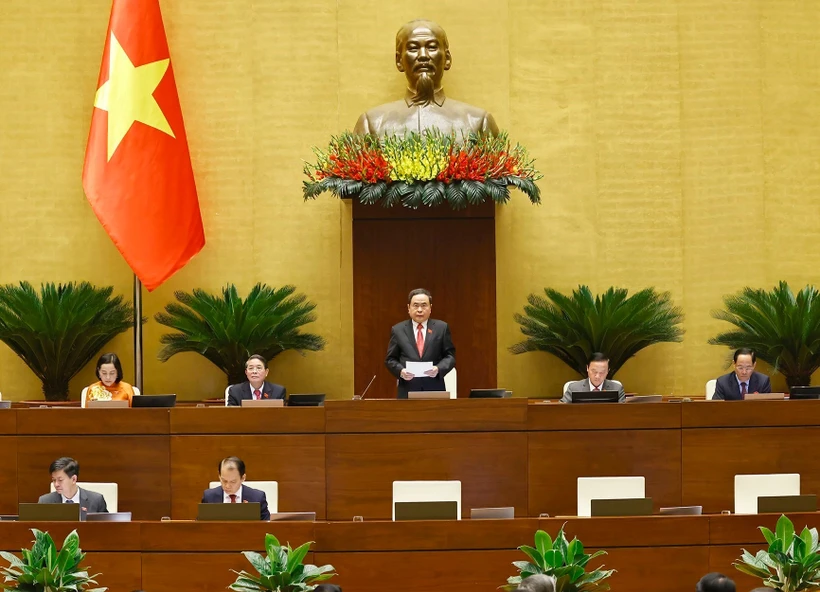
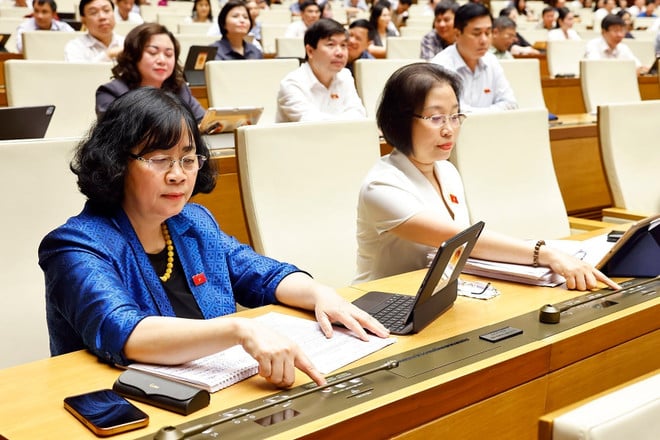
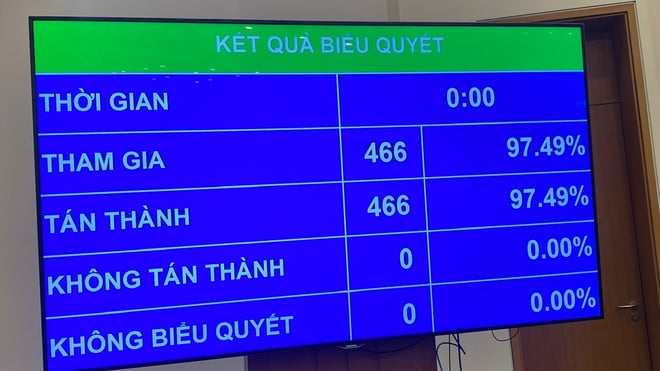



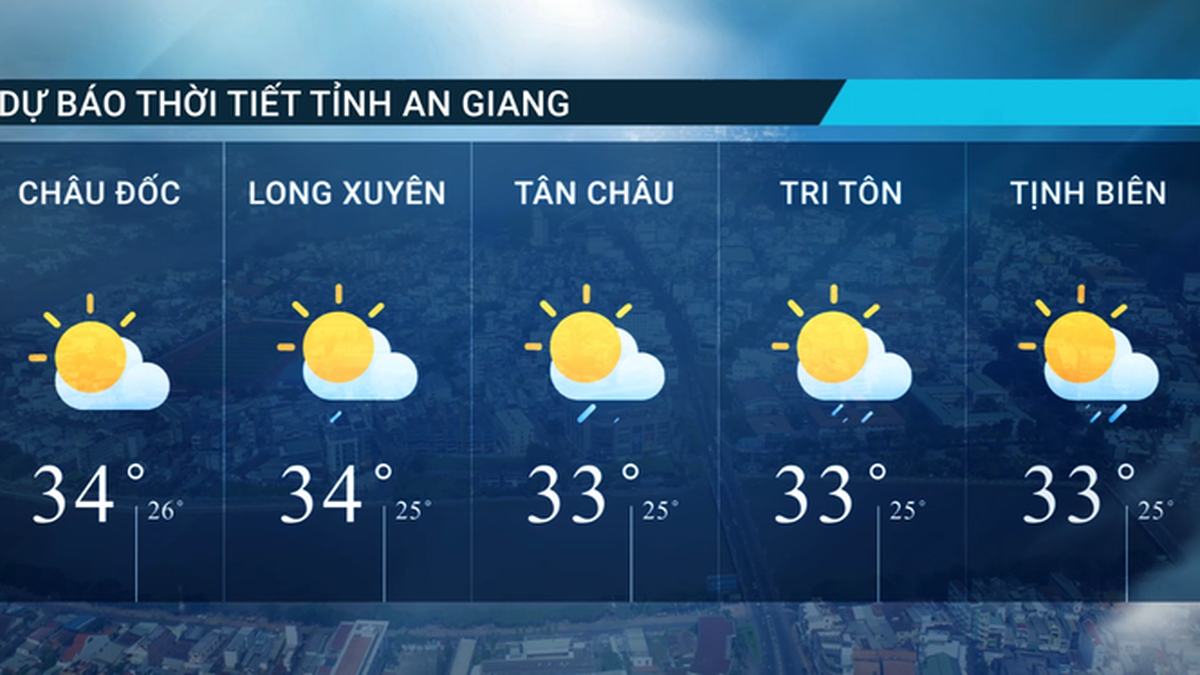
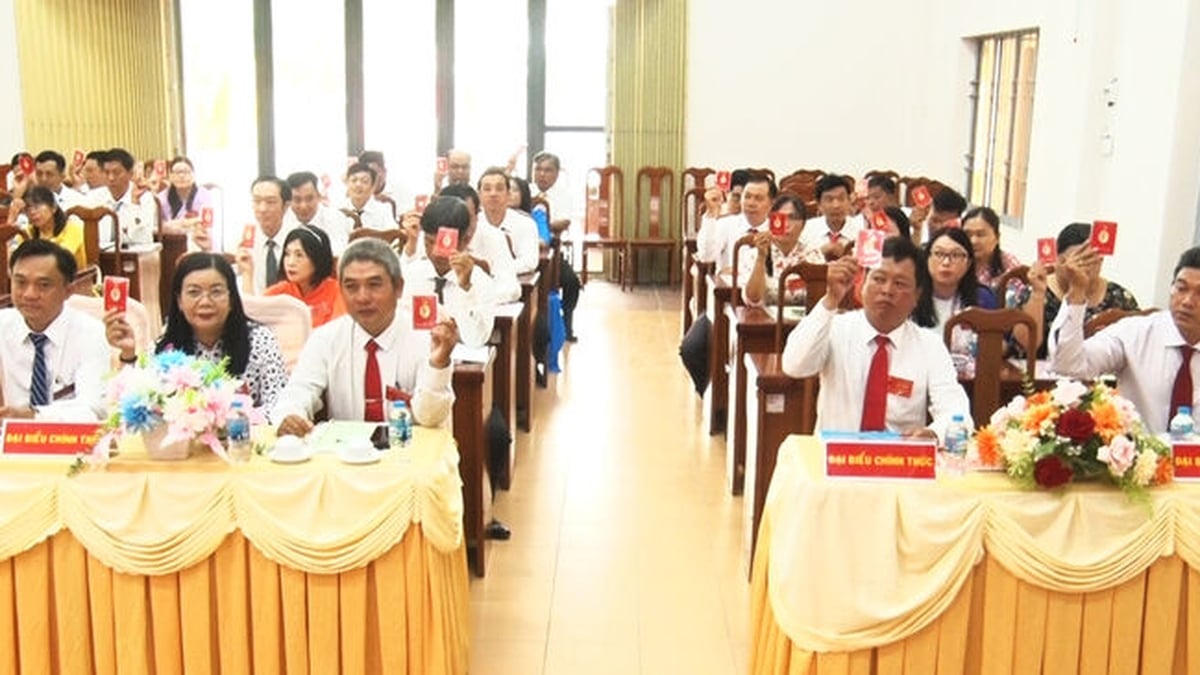


























































































Comment (0)